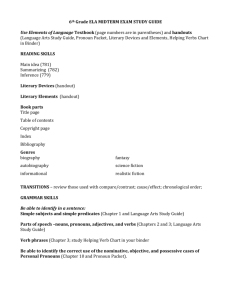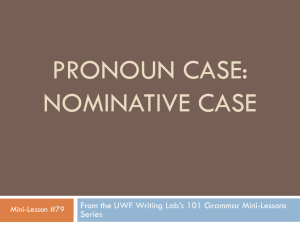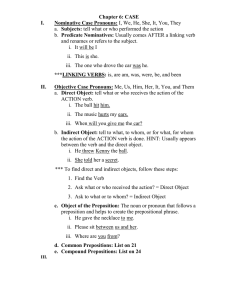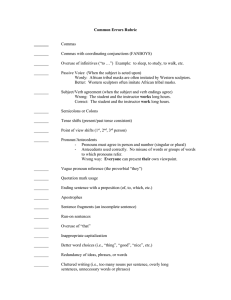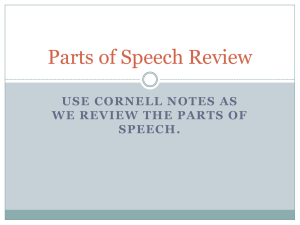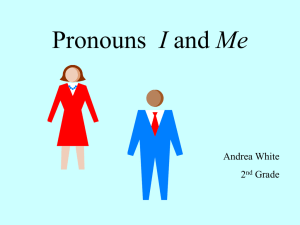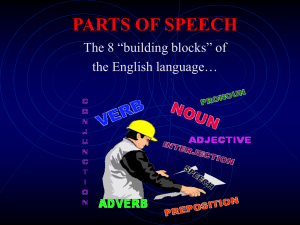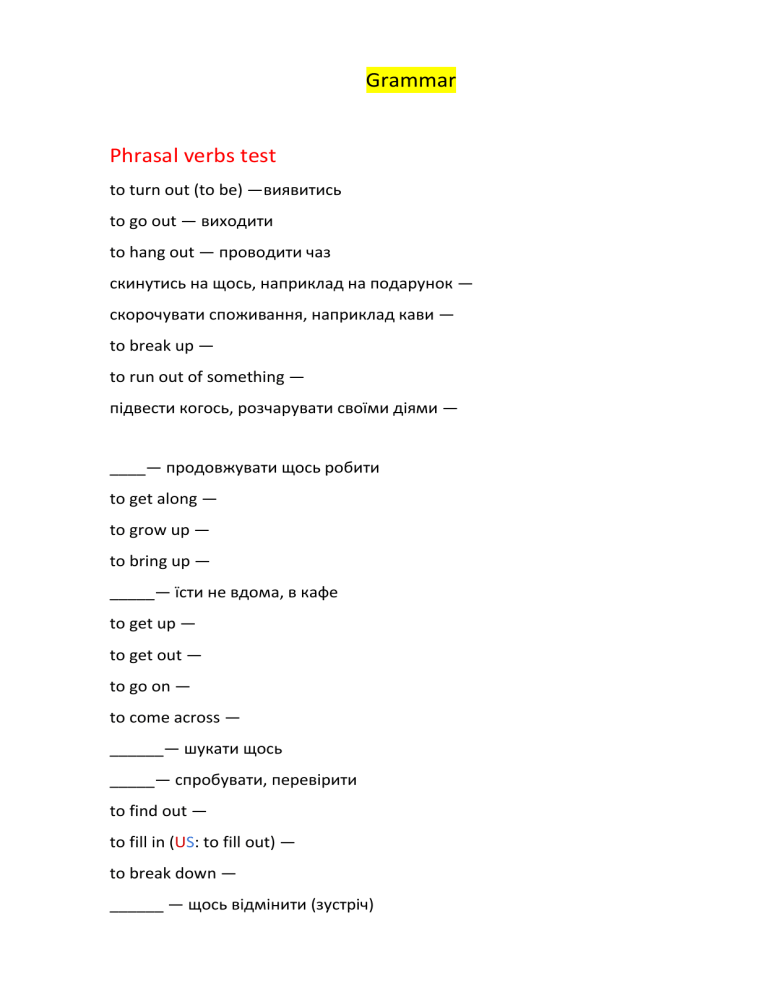
Grammar Phrasal verbs test to turn out (to be) —виявитись to go out — виходити to hang out — проводити чаз скинутись на щось, наприклад на подарунок — скорочувати споживання, наприклад кави — to break up — to run out of something — підвести когось, розчарувати своїми діями — ____— продовжувати щось робити to get along — to grow up — to bring up — _____— їсти не вдома, в кафе to get up — to get out — to go on — to come across — ______— шукати щось _____— спробувати, перевірити to find out — to fill in (US: to fill out) — to break down — ______ — щось відмінити (зустріч) to hang on — to put up with — to show off — ______— обережно, бережись! to work out — Subject and object pronouns (I vs me) Subject pronouns The English subject pronouns are: I, you, he, she, it, we they. 1: We use these pronouns when they are the subject of a verb. I like London. You have eaten the chocolate. He plays football. She hates mushrooms. It was cold. We are French. They are going home. Object Pronouns In English, we also have object pronouns. These are: me, you, him, her, it, us, them. We use the object pronouns in most situations when the pronoun is not the subject of a verb. 1: We use them for the object of a verb. John knows me. Amanda kissed you. The dog licked him. David hugged her. The teacher dropped it. The children love us. Luke helped them. 2: We use them after a preposition (including after phrasal verbs). It's important to me. Can the children come with you? Look at her! The chocolate is for him. David is looking forward to it. Keep up with us! Lucy works for them. 3: We use them after 'be'. Who's there? It's me! It's you. This is her. It was him! 4: We use them with short answers. A: Who's there? B: Me! A: Who ate the cake? B: Him! A: I'm tired. B: Me too. With short answers, we can also use a subject pronoun + a verb. This sounds a bit more formal than the object pronoun alone. A: Who's there? B: I am! A: Who ate the cake? B: He did! A: I'm tired. B: I am too. 5: We use them after 'as' and 'than' for comparison. She is as tall as me. He is taller than her. We can again use the subject pronoun + a verb in the same situation. She is taller than I am. He is taller than she is. 6: We use them after 'but' and 'except'. Everybody went home early but me. Everybody went home early except him. Though/ through/ thought/ tough/ thorough This carpet needs a ____ cleansing. The river flows _____ the city. Steven went to work, ____ he didn’t feel very well. This test was so _____. I _____ you were coming to my party Though/ Through/ Thought Though - хоча, все-таки, незважаючи на те is a conjunction (сполучник), like “and” “but” and “or”. It is used when the writer wants to point out a problem or a conflict. The waitress was rude though the food was delicious. *Though the waitress was rude, the food was delicious. Through - наскрізь, прямо, від початку до кінця is a preposition (прийменник), moving in one side and out of the other side of (an opening, channel, or location). Thought - думка, подумати is a noun and a verb. As a noun, a thought is a unit of thinking (одиниця мислення). As a verb, it’s the act of thinking now or at any point in the past. I have a thought. * thought through - продуманий Thought through plan, idea, scenario Here’s a sample sentence using all three words correctly: Though Danielle had thought through every possible scenario, Theo brought up lots of problems with her ideas at the meeting. - Незважаючи на те, що Даніель продумала всі можливі сценарії, на зустрічі Тео породив багато проблем щодо її ідей. *Tough - жорсткий/ міцний - таф You have to be tough to be successful in politics. Tomorrow we are having a tough exam at school. Thorough - ґрунтовний/ретельний Have you had a thorough medical checkup within the last year? За і проти Pros and cons Advantages and disadvantages Positive and negative sides Upside and downside Написати речення за і проти. Написати речення з me
